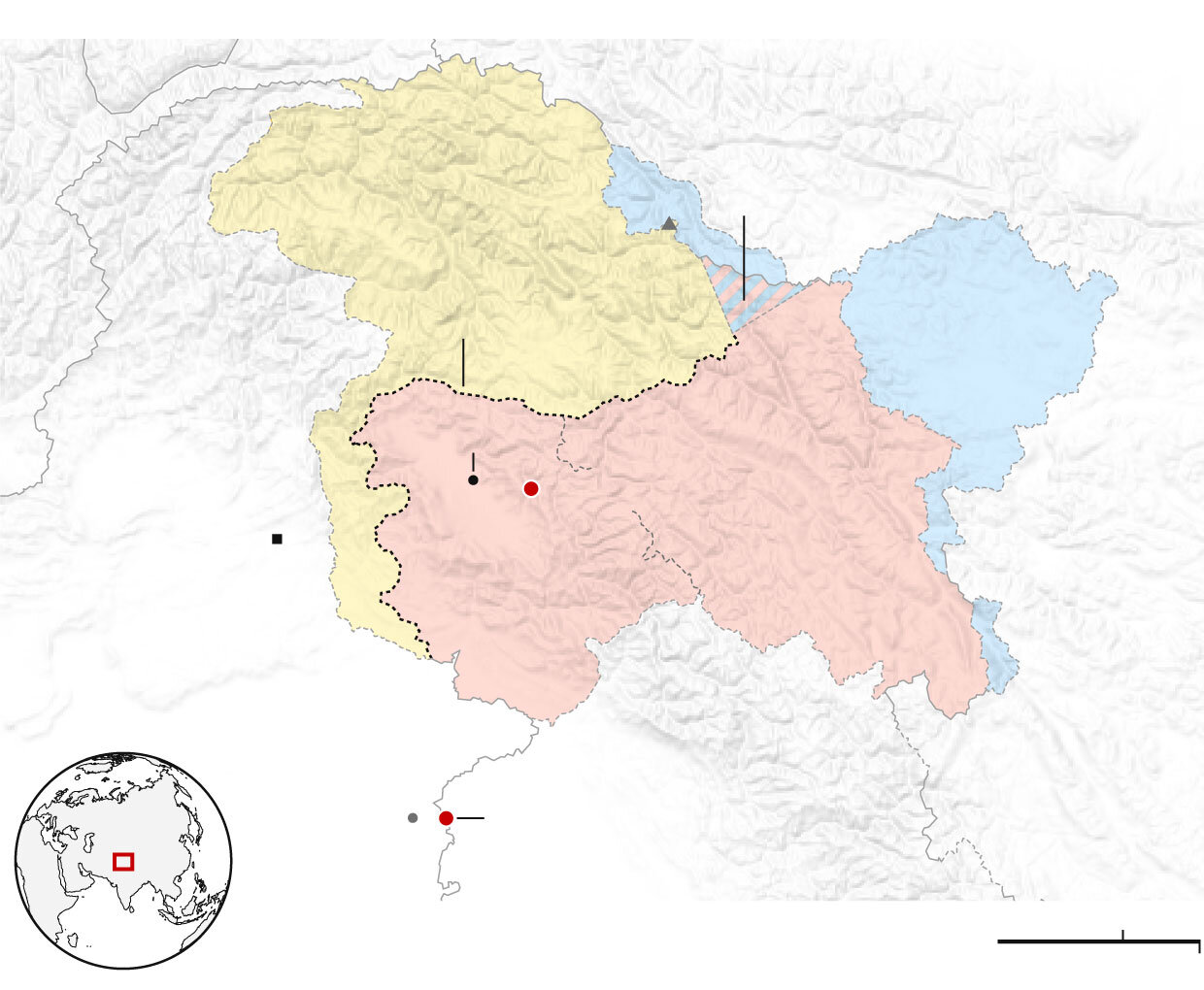Tensions between India and Pakistan have escalated over Kashmir attack

Tensions between the arch-rivals India and Pakistan have escalated rapidly after the massacre of 25 Indian tourists and a Nepalese citizen in the disputed Himalayan Kashmir region on Tuesday, prompting warnings of a return to conflict.
A previously unknown Islamic militant group calling itself the Resistance Front has claimed responsibility for the attack, which India immediately linked to Pakistan, although it did not publicly produce any evidence. Pakistan has denied any involvement.
Among a string of punitive measures announced since Tuesday, India has downgraded diplomatic ties, suspended a crucial water-sharing treaty and revoked all visas issued to Pakistani nationals.
In retaliation, Pakistan has closed its airspace for all Indian-owned or Indian-operated airlines, and suspended all trade with India, including to and from any third country.
In 2019 Narendra Modi’s government launched a severe security crackdown in Indian-administered Kashmir and revoked the region’s special status, which had granted it limited autonomy since 1949.
The move fulfilled a longstanding Hindu-nationalist pledge and was widely welcomed across India, but angered many in the territory itself. Against a backdrop of widespread repression, insurgent violence tapered off and tourists returned to the region.
New rules were implemented that allowed outsiders to buy land in Kashmir for the first time, which many saw as an attempt by the Bharatiya Janata party (BJP) to dispossess them from their land and change the Muslim demography of the region.
Under its special status Kashmir had been able to define who its permanent residents were, preventing incomers from other parts of India from applying for jobs, scholarships or buying land.
With the new domicile rule, India widened who was eligible to live and work in Kashmir, leading to accusations that it was trying to change the demographic make-up of the region. The Resistance Front cited this claim when it claimed Tuesday’s attack.
“Act of war”
While some of the bellicose rhetoric that has been visible in the past few days is familiar from past crises between India and Pakistan that have fallen short of war, India’s decision to suspend the 1964 Indus Waters treaty is a very big deal.
The treaty, which has survived endless crises over the years, is one of the world’s most successful water-sharing agreements, allowing for sharing the waters of a river system that is a lifeline for both countries.
Pakistani agriculture’s massive reliance on the Indus system’s waters for irrigation makes the treaty crucial for the country. Pakistan has said any interference with water flow would be treated as “an act of war”.
Source: The Guardian
